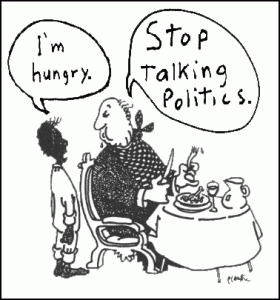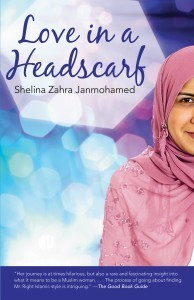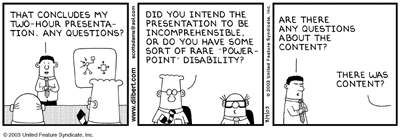Shelina Zahra Janmohamed's Blog, page 21
October 17, 2010
For one moment, I was at peace with my being
This is my weekly column for The National , published yesterday.
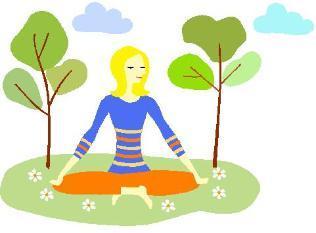 This week I discovered yoga. Anybody who is a Somebody already does yoga, right? Yoga is for cool, chilled-out types, and since that obviously describes me, I figured I ought to become yoga-tastic.
This week I discovered yoga. Anybody who is a Somebody already does yoga, right? Yoga is for cool, chilled-out types, and since that obviously describes me, I figured I ought to become yoga-tastic.
I turned up at the class, attired in loose clothing, clutching my new yoga mat. Everyone else was already sitting on their gently worn mats, looking calm and beatific.
By contrast, I started a fight with my mat, which refused to flatten, instead curling up at either end, betraying my just-bought-fromthe-shop novice status. Eventually I turned it upside down and sat with a plonk at one end and stretched my legs out to keep it flat on the floor. I raised a knowing eyebrow at my neighbour and shrugged conspiratorially about errant mats and their non-compliance. She looked at me serenely as though such petty matters were of no consequence to her.
The class began, and we stood feet slightly apart, knees soft, crowns lifted towards the sky and chins up. Eyes were closed. We were instructed to concentrate on our breathing. " Count four breaths in, and now six breaths out. Keep going," the teacher whispered soothingly, " Only recognising your breath." Recognising your breath, eh? I recognise my breath. It keeps me alive.
"Breath, breath is air," I thought. "Air. Must top up the car tyres, getting flat. Need good tyres, going on long drive. Must stock up on food before setting off. Need to go to supermarket to buy food. Hmm, should pick up dinner ingredients whilst there. And supplies for the weekend. Weekend, must visit relatives. Ooh, and that film we wanted to see, should book tickets in case they sell out. Not sure about having time to watch a film, have to organise spare room for guests. Too much to do."
 The instructor's liquid-honey voice oozed gently across my thoughts. "Are you still concentrating on your breathing? Or," she teased, " has your mind wandered a bit?" I blushed. Wandered a bit? I've planned out the rest of my week. I felt smug in my high levels of productivity, but knew I had failed to be present just in the moment. Why was I here, if I was only going to be somewhere else?
The instructor's liquid-honey voice oozed gently across my thoughts. "Are you still concentrating on your breathing? Or," she teased, " has your mind wandered a bit?" I blushed. Wandered a bit? I've planned out the rest of my week. I felt smug in my high levels of productivity, but knew I had failed to be present just in the moment. Why was I here, if I was only going to be somewhere else?
While everyone else curled elegantly onto all fours for the next exercise, I scrambled clumsily to the floor, still mapping out my supermarket shopping list. Then we did more of that breathing stuff.
The instructor was a tease. "Raise your right leg," she whispered lusciously. "Now," she paused for dramatic effect, "this next move is for only very advanced practitioners." She paused again and we waited expectantly. "In this position," she continued, her voice as smooth as melted chocolate, "raise your left leg."
The room stiffened to execute the move, and then realised its impossibility. The instructor chuckled. " I could hear you all tensing with competitiveness," she smiled. " It's not a competition, this is just about you. And finding who you are and recognising your own merit."
The competition wasn't against the shopping list, the supermarket or the weekend plans. The competition wasn't even against myself, in order to score my yoga performance or my weekly productivity. There was no competition. The moment was just for the moment's sake.
And then I did something I haven't done for a long time. I appreciated that very moment, the wondrousness of my breath, and the stillness of everything being in exactly the right place at the right time.
Just for an instant, I was the mistress of the moment. And more importantly, just for an instant, I was the mistress of my entire being.
October 14, 2010
Despite our differences, we all need to shop
This is my weekly column from The National UAE.
 Let's stop talking about politics and extremism. We need to go shopping.
Let's stop talking about politics and extremism. We need to go shopping.
Trade was arguably one of the things that once made the Muslim world great (and rich), and created fluid and mutually binding relationships with other great world powers.
Star products included spices from as far afield as India and Indonesia, Oman's sweet fragrances of frankincense. And coffee, ah, dear wonderful coffee with its warm hug of caffeine first thing in the morning, also came from the Muslim world.
So, at a time when global relations are showing the odd sign of strain (anyone mentioned the mis-labelled 'Ground Zero' mosque recently?), what antidote could be more fitting than the resurgence of Islamic branding and marketing as a 21st century phenomenon?
You all think I've lost the plot, don't you? Some Muslims are going to be up in arms that I'm advocating a supposedly consumerist-capitalist-slave-making-spirituality-stifling paradigm. And Islamophobes are going to say that I'm trying to hide an Islamist take-over inside my recyclable plastic shopping bags.
Chillax, people.

Ogilvy & Mather, one of the world's largest marketing and advertising agencies, has commissioned research to better understand the world's 1.6 billion million consumers. The segmentation of consumers was not just for shopping's sake, but to get under the skin of what makes 'real' Muslims tick, those1.599999 (recurring) billion Muslims, not the handful of crazy ones who think the way to get your fifteen minutes of fame is to blow things up.
Maybe it's the juxtaposition of the seeming frivolity of shopping versus the scary headlines of bombings that gives rise to this kind of angst. Or maybe it's that people who stand to benefit most from upholding the "Clash of Civilisations" thesis don't want us to see the things we have in common as human beings. These shared aspirations include trying to become better human beings, world peace, eradication of poverty, equality and justice for all, and an end to exploitation, violence and suffering. Oh yes, and we all need stuff, starting from the basics like food, clothing and construction materials.
So, given our shared human need for things which we need to buy, perhaps we can use trade and commerce, built on ethical, sustainable and non-exploitative principles, to understand a bit more about each other and to build relationships. Please note that I am not advocating a materialist, exploitative, disposable culture. I'm simply pointing out that all human beings need things to survive, and trade is a basic of human civilisation.
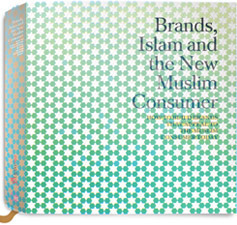
Research produced by Ogilvy & Mather's specialist Islamic Branding division
So what did Ogilvy & Mather's research tell us about Muslim consumers? Importantly, instead of judging them on a single dimension of how 'devout' they are, it looked at what role religion plays in their lives. Their findings identified two broad categories which they labelled 'Traditionalist' and 'Futurist' and in each one were a further three segments. 'Traditionalists' have a desire for harmony and belonging, they are quietly proud of their faith and align with values of tolerance and compassion. 'Futurists' see themselves as steadfast followers of Islam in a modern world. They are individualists who 'choose' Islam. Their pride is intense, regardless of the extent to which they would be categorised as 'devout'.
The research insights are meaningful because the trick to successful commerce is the same as that needed for international relations and diplomacy: it is to understand the drivers and motivations of people and to give them due recognition.
So, when we talk about trade with Muslims, we might find ourselves positively addressing wider issues of international relations. In the world of shopping, I believe they call that a 'two for the price of one' offer.
October 12, 2010
Love in a Headscarf launches in USA
Exciting times! Today sees the launch of the US edition of Love in a Headscarf, published by Beacon Press.
The book has already received the following praise from the USA:
"Her account of having to meet the succession of suitors—frequently unsavory, reluctant or downright rude—is hilarious…A forthright, charming tale of unraveling the 'overwhelming contradictions and tangles' of identity."
—Kirkus Reviews
"What a fun glimpse into the courting rituals of a traditional South Asian British Muslim community! Janmohamed's colorful and often humorous memoir shows us how those of another culture and religion might navigate the search for love, that most universal of themes. Perfect for the bedside table, but enlightening, as well."
—Sumbul Ali-Karamali, Author of The Muslim Next Door: the Qur'an, the Media, and that Veil Thing
"A gripping and enjoyable read."
—Leila Aboulela, author of Minaret
"A delightful memoir that celebrates spirituality, self-empowerment, female agency and resistance to cultural (both 'Eastern' and 'Western') dictates on women's roles and identities."
—Randa Abdel-Fattah, author of Does My Head Look Big in This?
"With honesty and humor, Shelina Zahra Janmohamed navigates the complicated world of being a British Muslim woman in our modern society. Love in a Headscarf is a rich and full exploration of her choice to uphold her Islamic traditions, while maintaining her own identity in her search for love and spirituality. Along the way, Janmohamed enlightens readers and reminds us all of our common humanity, with, or without, a headscarf. A thoughtful and captivating read!"
—Gail Tsukiyama, author of Street of a Thousand Blossoms
About the book
From the moment the doorbell rang at her parents' North London home, Shelina was poised and ready to meet her possible true love. Would the suitor behind the door be her "Muslim Man Travolta"? The scene was set—her team of clamoring "Buxom Aunties" fried the samosas to a perfect golden brown, her mother plumped the cushions, her father adjusted the curtains, and Shelina, draped in a rose colored hijab, was having a "Good Headscarf Day."
In her memoir, Love in a Headscarf, Shelina Janmohamed, one of Britain's leading female Muslim writers, takes readers on her journey to find "the one." Navigating through the always complicated world of dating, Janmohamed's search to find true love takes her from social mixers at her North London mosque to speed dating sessions in the city and even to the snow-capped Mount Kilimanjaro. But for Janmohamed, her journey toward finding her partner was always a family affair.
Opting for a traditional arranged marriage, Janmohamed is set up on both "Family Dates" and blind dates by her mom, her meddling aunts, professional matchmakers, and even her mosque's Imam. Janmohamed's story of dating, Muslim style, redefines for readers what arranged marriage actually is. The family's role, she explains, is to suggest potential suitors and ultimately offer advice, support, and wisdom. "I had to agree to my future partner willingly and happily," she writes. "What they were offering was an arranged marriage—something very different from a forced marriage." And honestly, "who would object to help in finding the love of one's life?" Janmohamed asks.
Hilarity ensues when Janmohamed embarks on many of her arranged dates. Her team of matchmakers introduce her to Ahmed, a sullen accountant who discusses the difference between bankers and actuaries ad nauseam, and Syed, another accountant, this one a smooth talker, who shows up two hours late to their coffee date because he was home watching a cricket match. Next, there was Khalil, the London-bred dentist who dismissed Janmohamed because of her height, insisting he "could never marry someone who is only five foot three," and Karim, the newspaper photographer who allegedly didn't receive her emails because "his house was struck by lightning." She meets men who find her too religious, because she is veiled, and others that find her too Western because she is an ambitious Oxford educated woman who drives a convertible sports car.
Despite her many failed setups, it is on this journey to find true love that Janmohamed finds Divine Love. The thoroughly modern Muslim climbs Kilimanjaro, visits Egypt's pyramids, and makes the hajj to Mecca, allowing her to deepen her personal relationship with the One and further embrace the three paths of Islam: "law, compassion, and love." And it is at this moment, when Janmohamed reconnects with the Divine One, that she finally meets her future one.
October 11, 2010
Film review: 'Arranged'
This review was published in The Times.
This is a film that neither proselytises nor patronises religion, a refreshing change
Arranged is the kind of film that brought me joy to watch because it celebrates the choices of women to whom religion is not just important, but critical in their lives. The story is written from within their own world view, showing their struggles with tradition and culture.
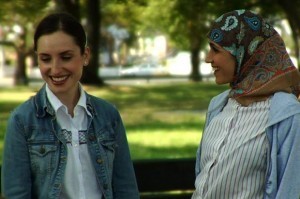 The themes that the film explores range from love and companionship, independence and belonging, religion and secularism, modesty and hedonism and reflect the voices of many like me who embrace religion as an important part of the modern world. And for those viewers who just don't "get" religion, this is a gentle and endearing film that gives an insider's glimpse into the way such women view the world. It neither proselytises nor patronises religion, whether you believe in it or not.
The themes that the film explores range from love and companionship, independence and belonging, religion and secularism, modesty and hedonism and reflect the voices of many like me who embrace religion as an important part of the modern world. And for those viewers who just don't "get" religion, this is a gentle and endearing film that gives an insider's glimpse into the way such women view the world. It neither proselytises nor patronises religion, whether you believe in it or not.
You can't help but like the two lead characters, Rochel and Nasira, if for nothing else than the growth that they show through the narrative of the film. It is the most traditional of institutions – marriage and matchmaking – that lead them to discover who they are, and what is important to them.
Just as when I wrote my own book, I felt that the universal search for love, relationships and companionship was a wonderful vehicle for exploring the different ways that people set out to achieve the same essential human goals. One of the film's great successes was that it avoided third party judgement of the cultures and traditions, but allowed the characters themselves to tell their own stories from within their own heritage. It allowed the voices to speak for themselves.
As a Muslim viewer of the film, it was clear to me that the writer had a stronger insight into the Jewish perspective – which reflects her own upbringing. This was informative for me as I got an insight into the Orthodox lifestyle – something I've always wanted to see, but never known how to gain access to.
The writer's background also translated into a more nuanced and confident approach to assessing the flaws as well as the positives of Rochel's situation.
Nasira, the Muslim woman, is very likeable and the writer has done well to get under her skin. It is rare to see a female Muslim protagonist with such confidence and bubbliness, as well as humour and charm, so I'm not complaining. But I sense that the writer wasn't able to inject the same level of compassionate critique into Nasira's character that she could into Rochel's.
There are some good comedic moments, including the standard 'bad-date-montage'. And Nasira's comment about her nephew and Rochel's brother playing together in the park as 'an advert for world peace' shows that the film makers and protagonists have a sense of the place of their film in the wider social and political narrative.
Is this a chick flick just for women? Yes and no. Of course the challenges that women face in particular when it comes to social pressures to marry will appeal most immediately to women, but this is a story about more than just marriage. Men will also relate to the confusions and pressures of conforming to a system that may seem at odds with its surroundings, as well as the struggle to find meaning and identity in an increasingly secular setting that has less and less respect for religion and people who make religious choices.
The only real criticism of this heart-warming film is that it has a very cute rom-com ending where perfect marriage partners are found, understanding is established and friendships endure. But this is after all a rom-com, so nothing wrong with a cutesy ending like that. And for those who want to complain that the lives of religious women could never be happy-happy like this, I'd say a number of things. Suggesting that religious women are not happy with their choices is to bring a huge number of prejudices to judging the film – after all this is a film exploring exactly the kind of women who are happy with their choices, but who reach that contentment through the struggle to reconcile tradition and religion and find their own voices within that space. It's exactly this kind of voice that we miss in our public discourse about women and religion, as such women are constantly talked over. Here we finally have a chance to hear what they say for themselves. Second, in every society and culture women face difficult relationship choices, some which work out well and some that don't – why complain when a rom-com about religious women has a happy ending? And finally, with all the negativity that exists in the public space about women who choose to uphold their religious values, it's refreshing to find a small space where the joy of family, society and religion can be relished.
*****
If you'd like to read a review by a Jewish author of the same film, you can read one here also at The Times.
*****
October 7, 2010
What kind of Muslim are you?
This article was published in November's edition of EMEL Magazine.
Recent marketing and advertising research concludes that 'Muslims are diverse'. Why can't Muslims be of the same opinion?
In the political, social and religious spheres, there are plenty of labels to define what kind of Muslim you are. Are you a moderate or a fundamentalist? A Sufi or a Salafi? A progressive or a conservative?
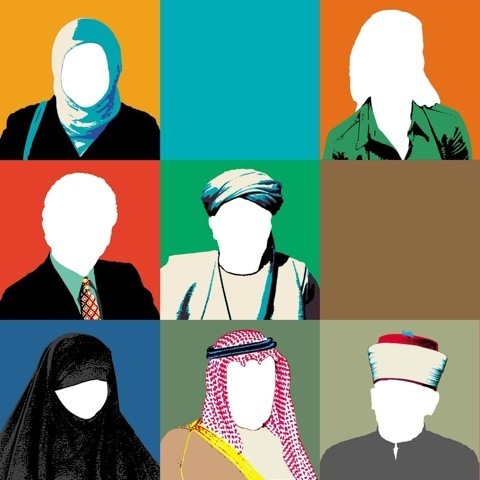 More often than not, a Muslim will be defined by how outwardly pious they appear – how long is his beard, how expansive is her head-covering – as though a Muslim is defined on one axis only. Such lazy and judgemental labelling has prevented us from seeing the human aspirations, motivations and even foibles that make up the great mosaic of the global Muslim nation.
More often than not, a Muslim will be defined by how outwardly pious they appear – how long is his beard, how expansive is her head-covering – as though a Muslim is defined on one axis only. Such lazy and judgemental labelling has prevented us from seeing the human aspirations, motivations and even foibles that make up the great mosaic of the global Muslim nation.
So when two of the world's largest marketing and advertising agencies commission research into better understanding Muslim consumers, it is a good time to ask ourselves: can the commercial world get past these labels and help us gain better insight into the attitudes, diversity and aspirations of Muslims?
JWT's aim was to identify the common values at the core of the Muslim market. Five segments emerged. It is worth noting that no segment is more or less merit worthy in terms of humanity.
'Social Conformists' (19%) believe social norms should be adhered to even at the cost of personal choice. They lack self confidence and rely on others for decisions. They are not religious and feel positively about Western values. 'Religious Conservatives' (17%) follow and expect others to follow religious practices, which always override personal choice. They are anti-media and information averse. They support gender segregation. 'Pragmatic Strivers' (24%) are non traditional and ambitious, open-minded and willing to compromise on religious values in order to get ahead. 'Extreme Liberals' (21%) are independent and assertive and not particular about tradition or religious practices. They will explore options even if they don't conform to religious or societal norms. 'New Age Muslims' (19%) are traditional and religious but do not expect others to be so. Whilst religious, they believe in gender equality, are pro-media and pro-Internet.
Ogilvy & Mather Worldwide published their report earlier this year, and have even set up a specialist Islamic branding and marketing agency. The CEO made an interesting remark about how piety is often confused with understanding the state of being Muslim: "While segmentations of Muslim consumers have been attempted before, they have often tended to merge into relatively simple scales of devoutness in terms of adherence to Islam on a scale of liberal to conservative. It seems more profound to look instead through the lens of the role that religion plays in their lives."
The research identified six segments. The 'Connected' (27%) who see themselves as part of the web-like network of the Ummah, saying 'religion connects me'. Technology is positive, and compassion ranks highly. The 'Grounded' (23%) say 'religion centres me': Islam is their anchor, religion and culture are inseparable. They seek peace and closeness to God. The 'Immaculates' (11%) say 'religion purifies me' are younger, seek discipline and perfection, and may incline towards rejecting the impure. These three segments have a more 'Traditionalist' mindset; a desire for harmony and belonging; quietly proud of their faith; aligning with values of tolerance and compassion.
The remaining three segments were noted as of key importance in influence, labelled as the 'Futurist' mindset who see themselves as steadfast followers of Islam in a modern world. They are individualists who 'choose' Islam. Their pride is intense, regardless of the extent to which they would be categorised as 'devout'. They believe in education and question intention. 'Identifiers' (27%) wear Islam with pride: 'religion identifies me' and want it strengthened and defended. The 'Movers' (6%) say 'religion enables me'. They are internet savvy and act as change agents. The 'Synthesizers' (6%) are pragmatic, and adapt religious practice to their needs saying 'religion individuates me'.
If we are to take any first insights from these commercial models, it is to learn that the aspirations and motivations of Muslims are not homogeneous, and Muslims should not be judged in a one-size-fits-all fashion. Muslims have complex and varying motivations, and yet their religion still informs what they do.
Muslims expect others to recognise and respect Muslim diversity. Such research highlights this, and if anything the immediate next step is to hope that we can learn to apply the same level of complexity to how we as Muslims ourselves see other Muslims, rather than just judging them by how pious they 'appear' to be.
Surprisingly, such commercial research may help us better understand our co-religionists, and what motivates and inspires them.
October 5, 2010
Love in a Headscarf to launch USA edition next week
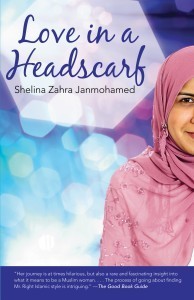 Next Tuesday, October 12th, will see the launch of the next international edition of Love in a Headscarf. This time it's the USA that will have it's own edition.
Next Tuesday, October 12th, will see the launch of the next international edition of Love in a Headscarf. This time it's the USA that will have it's own edition.
If you haven't pre-ordered your copy yet, make sure you get one before they sell out!
http://www.beacon.org/productdetails.cfm?PC=2154
And if you are in the USA media and would like a review copy, interview or any other info from Beacon Press (the marvellous publishers) or an article then please do get in touch.
America – here we come!
October 2, 2010
This column began as a Powerpoint, and then suffered a midlife crisis
This article was published today in The National UAE.
Thirty five is the new forty five. And not in a good way. It's the new age for a mid-life crisis. This social passage was once reserved for us to 'enjoy' in our late forties and fifties. It was triggered as thoughts of status, achievement and being 'over the hill' along with imminent retirement and death came to the fore. We can now worry about all those same issues, and dabble in the usual expressions of midlife insanity sooner than we thought. Isn't 21st century life fabulous?
My husband assures me that when he does reach this new and improved milestone, he is not planning to grow a ponytail, buy a fast car or find a younger woman. I have told him that I'm not worried about excessive rock-star wannabe hair growth. A sharp implement like pair of scissors or a large meat cleaver in the middle of the night can fix that. And if he buys a sports car, then I'm likely to follow suit. And as for any female distractions, well, my husband has been given fair warning to banish even any remote thought of this that he may harbour.
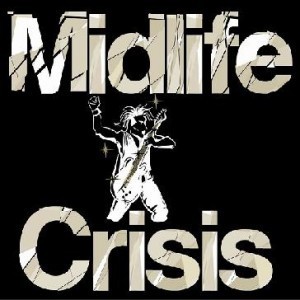 According to a study by Relate, a UK-based charity with 70 years experience in supporting relationships, people aged 35 – 44 are the unhappiest in society. Work, money and loneliness are the key factors.
According to a study by Relate, a UK-based charity with 70 years experience in supporting relationships, people aged 35 – 44 are the unhappiest in society. Work, money and loneliness are the key factors.
Nearly a third of 35 to 44-year-olds said they had left a job because of a bad relationship with a colleague, (a pedantic slave-driver type boss?) with a similar amount thinking their family relationships would improve if they worked less.
I think the stuffy boss who makes you do complicated and time-consuming work that is completely pointless, is a big factor in this misery. And for office workers, such bosses have an additional torture instrument at their disposal: the demand for useless powerpoint presentations.
Have you ever written a 24 month company strategy in powerpoint? I have. You can only write about 25 to 50 words on one page. The result is that one of your company's most serious documents looks like a children's book.
I used to fight the good fight and insist that strategy documents were written in Word, so that complex ideas could be properly communicated.
The Demanding Boss would say unhelpful things like: "If it can't be said on one slide, then it's not worth saying." Or, "CEOs only have a 15 second attention span. If they can't grasp the powerpoint picture, then you've lost them." And if you can make the pretty pictures whoosh in and out of the slide with clever animations and sound effects, then you can be sure that the company will be saved, product prices will go up and bonuses will be assured. That is of course as long as you – the office slave who has nothing else to do least of all go back to a loving family and a comforting home – work over the weekend to put together a 100 slide presentation in yet another different template issued by the branding team. Don't forget to include all that clever whooshing.
To be honest, compared to constructing that tome of animated slides, a midlife crisis suddenly sounds very appealing.
September 28, 2010
I am not my job
This article was published in the September issue of EMEL Magazine.
 There have been many days that I have wanted to declare my liberation from being an office slave. I have often envisaged – as many people do – after yet another ridiculously inane meeting, or an unreasonable weekend request to put together yet more Powerpoint slides, to stand up and yell the words "I quit!"
There have been many days that I have wanted to declare my liberation from being an office slave. I have often envisaged – as many people do – after yet another ridiculously inane meeting, or an unreasonable weekend request to put together yet more Powerpoint slides, to stand up and yell the words "I quit!"
However, there is also something of the ice queen in me that has planned and re-planned a stroll into the manager's office, a handing over of a  crisp white envelope with the merest hint of a smile, leaving my badge on the desk and then a victory walk to freedom to rousing applause from my colleagues, out of the building's front door.
crisp white envelope with the merest hint of a smile, leaving my badge on the desk and then a victory walk to freedom to rousing applause from my colleagues, out of the building's front door.
I've never done it, and it's not just because I still have the mortgage payments for the dream house and the dream garden, and the dream car parked in the drive, although the irony is not lost on me that my dream lifestyle is trapping me in a nightmare job. No, it's not just about the money.
My job is who I am, and defines everything about me. And if my job defines who I am – well, who would I be without it?

You think I'm wrong about how our jobs define us? Well, picture all those parties or tedious networking events…
"What is your name?" asks the stuffed shirt. And this is always, always followed by "and what do you do?" as though your job
is your entire life definition. Even dating and marriage are governed by the rule that we define ourselves by our jobs. Bagging a doctor, lawyer or investment banker – although maybe not so much the latter during the current recession inspired by the collapse of the banking sector – let's admit it, we still envy those with 'proper jobs' and in the Asian background I come fr
om, job status is everything. It carries little weight to be an artist, philosopher, journalist, thinker or scholar.
We do bring it on ourselves. I think Office Slavery is like Stockholm syndrome. We're trapped, but we fall in love with the idea of having the status, and definition – not just in the eyes of others, but in our own eyes. It's hard to put ourselves under scrutiny, but we should ask ourselves the question – not 'what am I?' but, 'who am I?' and even 'how am I?' thinking about our behaviour towards others.
Instead of the narrow definition of our job titles, we should want to free ourselves. Of course, I don't mean to instigate a plague of resignations being handed in as you all arrive at work this morning.
As a person of religion, work is a must. The example of the Prophet Muhammad is clear – you can't sit around and wait for others to serve you. But 'work' doesn't have to mean activity that is rewarded financially. It doesn't need to predicate an individuals worth on how much income they derive, and how much 'growth' they pump into the economic system. If anything, that reduces the worth of a human being to their income generating potential.
But the current financial climate needs to instigate some deeper thinking within the Muslim community about the purpose of work. Is it for money and wealth? Do economies need constant 'growth'? What are the responsibilities of corporate entities?
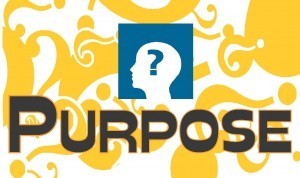 In my mind what is important in addressing the purpose of work is to see it not as an end in itself, but a component of developing the self and society. Yes, it helps to put food on the table – but that doesn't need to be just our own tables. Yes, it makes us productive members of society, but such a perspective broadens out the meaning of work to include housework, childcare, poverty relief, artisanship and so many other occupations. Work also lets us learn about ourselves by exposing us to challenge and people, as well as developing perseverance, endurance and a sense of self worth and dignity.
In my mind what is important in addressing the purpose of work is to see it not as an end in itself, but a component of developing the self and society. Yes, it helps to put food on the table – but that doesn't need to be just our own tables. Yes, it makes us productive members of society, but such a perspective broadens out the meaning of work to include housework, childcare, poverty relief, artisanship and so many other occupations. Work also lets us learn about ourselves by exposing us to challenge and people, as well as developing perseverance, endurance and a sense of self worth and dignity.
I'm simply asking the question: what about actually living life? Living life as who we are, to fulfil our dreams and aspirations, to be better human beings. We should own our jobs, and not the other way round.
September 26, 2010
My Life in the Alternative World of Spam
This column was published yesterday in The National UAE
Today, the prime minister of the United Kingdom, David Cameron, wrote to me. At least that's what it said on the e-mail that I found in my spam box.
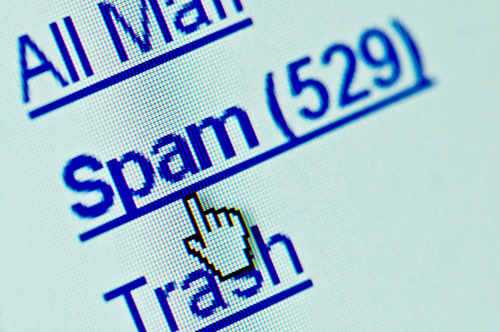
Courtesy of gfi.com
Despite the austerity measures that the government has recently announced, he is giving me an ATM card with a £5,000 (Dh29,000) daily limit. I can collect it from the foreign secretary William Hague by e-mailing back a copy of my passport. Alarm bells ring: shouldn't they have a copy already, them being the government?
Blog Blaster promises me two million hits on my blog. The US ambassador to Nigeria is just waiting, yes waiting on tenterhooks, to give me $5 million if I accept delivery of a package. And if you're too small, too slow or just too obsessed with the opposite gender, there are a whole range of drugs and stimulants out there for you, along with eye surgery, or losing weight at better prices than you could ever imagine. There are even a dozen suggestions on how I can work less but earn more.
I think I've become addicted to spam.
In this universe, I could live the sensational life of James Bond with overflowing bank accounts, happiness and love, and those crucial better looks. This is a slick world that increasingly entices me to dip into it every day to see what unimaginable thrills the mere click of a mouse could bring me.
I'm beginning to think that the version of Shelina that exists in the Alternative World of Spam is a far more exciting and glamorous one.
This glorious spam world is not without social conscience. It is in fact a God-conscious, spiritual arena.
I received a heartfelt plea to help release $17m dollars which a woman's deceased husband had put aside for the establishment of an orphanage. She exhorts me, in the Bible's words, that "Blessed is the hand that giveth", and that she doesn't want her "late husband's efforts to be used by unbelievers and greedy individuals for selfish and ungodly purposes".
The Spamiverse is not religiously exclusivist. I also get requests to help with dying men's wishes to build mosques and Islamic centres, and humanists who want to save cancer patients. Or humanists and Muslims in collaboration wanting to solve the world's HIV problems. It's a very creative, community-minded and tolerant place.
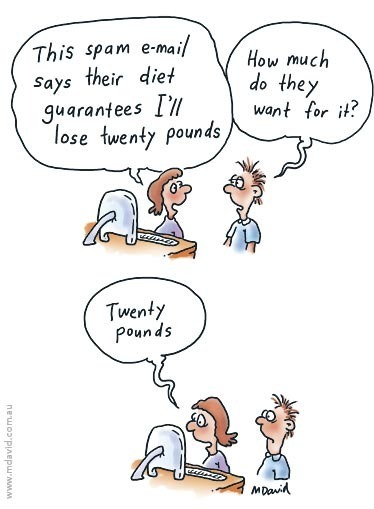
courtesy of mdavid.com.au
I cast my eyes over all the spam messages and feel warm and fuzzy at the world's possible perfection. Life is good in the Matrix-like universe of the Spambox, assuming we believe the superficial messages and fail to look deeper.
However, to accept at face value and click through the nefarious links would be hugely dangerous, and the illusion would be shattered. Don't click the links, whatever you do. Your bank balance will be drained. Your computer will be infected. Don't be fooled by the sweet words.
Spam is all the evils of today's illusory airbrushed world rolled into one. It feels personalised, but it's not written just for you. You are just a commodity to be parted from its cash and self esteem. It promises impossible outcomes, appealing to the worst in human nature of greed and vanity.
Spam doesn't only exist in your spam box. Those TV ads? That billboard across the street? That political rhetoric? You didn't ask for it – it just arrived in your life.
If it's too good to be true, it probably is. That piece of wisdom is the best, and only, thing to be gained from dipping into your spam. And that piece of wisdom applies to real life too.
September 19, 2010
No harm in being brief, but don't forget to think
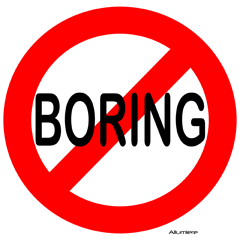
courtesy of coolfunnyshirts
This was published as the first of my weekly columns in The National .
"Just make sure you're not boring," was the advice my boss gave me as I stood up to deliver my first ever presentation to the company directors. I was an over-enthusiastic trainee, trying to impress my superiors.
"Right, Not-Boring" I repeated, having no idea how to achieve this nebulous goal. My topic was the creation of network computing technologies in the consumer and small-enterprise markets. My chances of success were slim.
The lights dimmed and the slide projector came to life. When none of the 30 attendees fell asleep, I felt I'd achieved a small victory (the low expectations of a graduate trainee). I'd employed jokes, self-deprecation, and created a bond with the audience about my subject matter curing insomnia. These had certainly helped. But you'd be surprised how tough it is to be Not-Boring.
The problem of course is not we, the protagonists. We – of course – are extremely interesting. It's the audience that's the problem: short attention spans. Apparently the modern brain has been mangled by the internet.
An Oxford University expert recently warned that constant computer and internet use may be "rewiring the brain", shortening attention spans and causing a loss of empathy. Does your partner spend more time with their iPhone or BlackBerry than with you? That's because you talk too
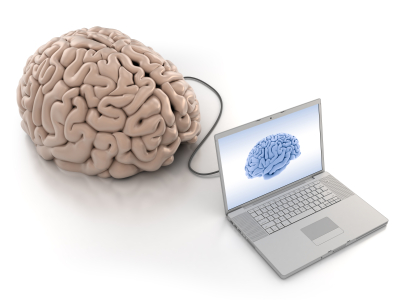
courtesy braintraining101
much, but the phone delivers bite-sized chunks of electronic joy. Do you feel as if your friends will attend to your emotional needs only if you can express your feelings in a Facebook status? That's the fault of the internet.
In short, short is good, in today's world.
"If you can't say it in 140 characters," say the Twitter-philes, today's avant-garde lovers of brevity, "then it's not worth saying at all." Perhaps they have a point. Consider a number of famous phrases from various spheres. Religion: "There is no god but Allah, Mohammed is the (last) messenger of Allah", 68 characters. World events: "That's one small step for man, one giant leap for mankind", 57 characters. Gender relations: "You don't love me anymore, cos I'm fat, all because I gave birth to your child! I'm looking after the baby and you're after those floozies!" 139 characters. On reflection, you can get a lot of marital whining into one Twitter message.
Brevity has its value in getting rid of unnecessary verbiage. Text messaging, Twitter and even the relatively mundane TV ticker have revolutionised the way that we are able to source vital information, or stay in touch with those who are dear to us.
These benefits have overshadowed the important fact that we still need to deliver complex ideas in speech and print, and engage in conversation, oratory and writing – skills that are slowly being eroded. We still need to ignite people's passion and humanity to create change, and it is the eloquence of speech and text that can do this.
I'm not part of the brigade whining about the loss of traditional thought processes. To the contrary, I believe that our brains should be best adapted to the environment in which they operate.
What I do mourn is the detriment to our attention spans, which leads to the loss of the pleasure of listening to a well-crafted speech, the capacity for deep thought or the escape into imagined worlds when reading lyrical text.
So when you are faced with your next challenge to be Not-Boring, my advice would be this: remember, it's not just what you say, nor how succinctly you say it. The magic comes from the craft you employ, and the way you convey your ideas.
Shelina Zahra Janmohamed's Blog
- Shelina Zahra Janmohamed's profile
- 175 followers



